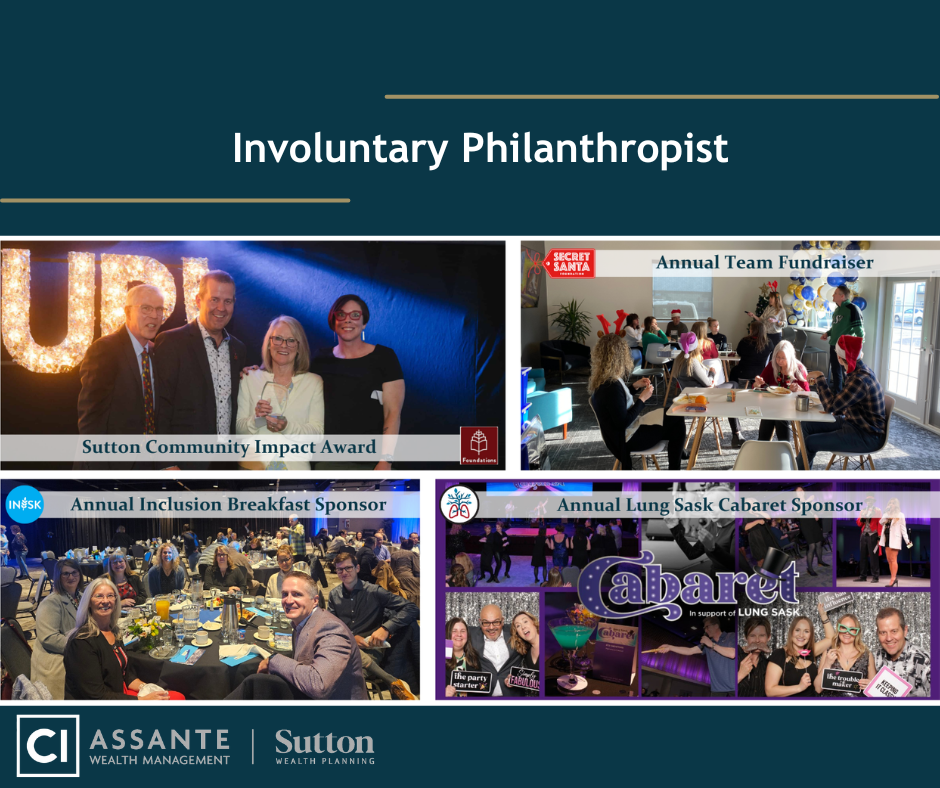November 15th marked National Philanthropy Day – a day to celebrate and honor the charitable efforts of everyone working to make a positive impact in their communities. We all have the power to create meaningful change—more than we often realize. By supporting causes close to our hearts and helping those we care about, we contribute to a brighter, more connected world.
In May 2021, I was honoured to receive my MFA-P Designation to help Canadians make better decisions about philanthropy and bring those plans to life.
The MFA-P Philanthropy Designation teaches advisors and their clients:
- How to incorporate philanthropy into their practice in realistic terms.
- How to focus on gift planning strategies and vehicles that are relevant to client’s goals.
- Practical experience with numerous working case studies that allow advisors to apply that knowledge.

Webster’s Dictionary defines a philanthropist as “a benevolent supporter of human beings and human welfare.”
 When I grew up and heard that big word, guess who I thought about?
When I grew up and heard that big word, guess who I thought about?
Bill Gates, Kenneth Thomson, Henry Ford, the mega-wealthy.
Who is this? “Someone who surrenders up to one-half of their family’s wealth or one-quarter of their capital gains to support the general welfare of our country.”
In other words, a taxpayer is an involuntary philanthropist.
 Our tax code makes us all philanthropists… and tax is the ultimate loss of control. Don’t get me wrong; I love our country and I’m wholeheartedly for paying my fair share of taxes.
Our tax code makes us all philanthropists… and tax is the ultimate loss of control. Don’t get me wrong; I love our country and I’m wholeheartedly for paying my fair share of taxes.
Estate taxes such as income tax and the capital gains tax are both voluntary.
You do have the choice to opt out of both of them. Take control where that money goes through a more joyful process that redirects what you would have lost to taxes and gives it to your family and the causes that you care deeply about.
Would you like to take control of your estate taxes by redirecting them to the causes and people you care about? Let me know.

If there be any truer measure of a man than by what he does, it must be by what he gives.”
—Robert South


